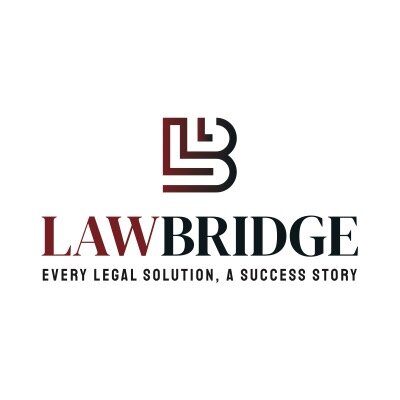Best Technology Transactions Lawyers in United Arab Emirates
Share your needs with us, get contacted by law firms.
Free. Takes 2 min.
Or refine your search by selecting a city:
List of the best lawyers in United Arab Emirates

The Black Robe For Legal Consultancy & Debit Collection
1 hour Free ConsultationAbout Technology Transactions Law in United Arab Emirates
Technology Transactions in the United Arab Emirates (UAE) involve the negotiation, execution, and management of contracts and agreements pertaining to technological products and services. This includes software licensing, IT services agreements, cloud computing agreements, technology transfer agreements, and more. The UAE has become a thriving hub for technology and innovation, attracting businesses and individuals looking to leverage modern solutions. It is crucial to understand the regulatory environment that governs these transactions to ensure compliance and protect your interests.
Why You May Need a Lawyer
There are several scenarios where legal advice in Technology Transactions might be crucial:
- When negotiating complex technology contracts to ensure clear terms and safeguard business interests.
- If you are dealing with cross-border technology agreements that involve different jurisdictions.
- In situations involving intellectual property rights associated with technology transactions.
- To ensure compliance with UAE’s data protection laws, especially in agreements that include data sharing or processing.
- During disputes or litigation related to technology transactions, where legal expertise is necessary to navigate the matter efficiently.
Local Laws Overview
The UAE's legal system accommodates a dynamic and business-friendly environment with specific legislation to govern technology and digital transactions:
- UAE Civil Code: Governs commercial transactions including technology-based agreements.
- UAE Electronic Transactions and Commerce Law: This sets a framework for conducting electronic transactions and commerce securely.
- Data Protection Law: The UAE’s data protection legislation requires strict adherence to privacy standards, particularly relevant in tech transactions involving personal data.
- Intellectual Property Laws: Protects innovation and regulates the use of patents, trademarks, and copyrights within technology transactions.
Frequently Asked Questions
What types of agreements fall under technology transactions?
Technology transactions typically include software licensing, hardware purchase, IT services agreements, cloud computing contracts, technology transfer agreements, and digital content distribution.
Are electronic signatures legally recognized in the UAE?
Yes, the UAE recognizes electronic signatures under its Electronic Transactions and Commerce Law, provided certain conditions are met to ensure authenticity and reliability.
How does the UAE's data protection law affect technology transactions?
The UAE mandates compliance with privacy standards, especially when technology transactions involve processing or sharing personal data. Adhering to consent requirements and data security measures is crucial.
What should I consider when drafting a software licensing agreement in the UAE?
Ensure that the agreement clearly defines the scope of license, usage rights, payment terms, liability limitations, and any service-level commitments.
Can technology contracts be governed by foreign laws in the UAE?
Yes, parties to a contract can choose the governing law; however, the enforcement of foreign judgments may require compliance with the UAE's procedural rules.
Is it necessary to register intellectual property related to technology in the UAE?
While not always mandatory, registering intellectual property can provide additional legal protection and enforceability in case of disputes.
What are the implications of using open-source software in the UAE?
Open-source software usage should adhere to the applicable license terms and consider potential implications on intellectual property rights.
How can I enforce a technology contract in the UAE?
Enforcement typically involves the UAE courts, and it’s beneficial to include arbitration or dispute resolution clauses in the agreement for efficient resolution.
Are there specific regulations for cloud computing in the UAE?
While there are no specific cloud computing laws, compliance with existing IT, data protection, and cybersecurity regulations is essential.
What's the role of a technology transaction lawyer in negotiation?
A lawyer can help identify potential risks, ensure the clarity of terms, protect intellectual property rights, and ensure regulatory compliance during contract negotiation.
Additional Resources
For further information, these resources may be helpful:
- Dubai Technology and Media Free Zone Authority: Offers resources and guidance specific to technology businesses.
- Telecommunications and Digital Government Regulatory Authority (TDRA): Provides information on regulations for digital transactions.
- UAE Ministry of Economy: For intellectual property registration and regulation guidance.
- Dubai Internet City: A hub for technology companies that provides additional support and information.
Next Steps
If you need legal assistance in Technology Transactions, consider taking the following steps:
- Consult with a legal expert experienced in UAE technology law to understand your specific requirements.
- Gather all relevant information and documents regarding your transaction, including existing agreements and correspondence.
- Identify your objectives and risks to discuss these with your lawyer for tailored advice and strategy.
- Ensure ongoing compliance with all relevant local laws as your transaction progresses.
Taking prompt legal advice can mitigate risks and facilitate successful technology transactions in the UAE's vibrant tech landscape.
Lawzana helps you find the best lawyers and law firms in United Arab Emirates through a curated and pre-screened list of qualified legal professionals. Our platform offers rankings and detailed profiles of attorneys and law firms, allowing you to compare based on practice areas, including Technology Transactions, experience, and client feedback.
Each profile includes a description of the firm's areas of practice, client reviews, team members and partners, year of establishment, spoken languages, office locations, contact information, social media presence, and any published articles or resources. Most firms on our platform speak English and are experienced in both local and international legal matters.
Get a quote from top-rated law firms in United Arab Emirates — quickly, securely, and without unnecessary hassle.
Disclaimer:
The information provided on this page is for general informational purposes only and does not constitute legal advice. While we strive to ensure the accuracy and relevance of the content, legal information may change over time, and interpretations of the law can vary. You should always consult with a qualified legal professional for advice specific to your situation.
We disclaim all liability for actions taken or not taken based on the content of this page. If you believe any information is incorrect or outdated, please contact us, and we will review and update it where appropriate.
Browse technology transactions law firms by city in United Arab Emirates
Refine your search by selecting a city.
















